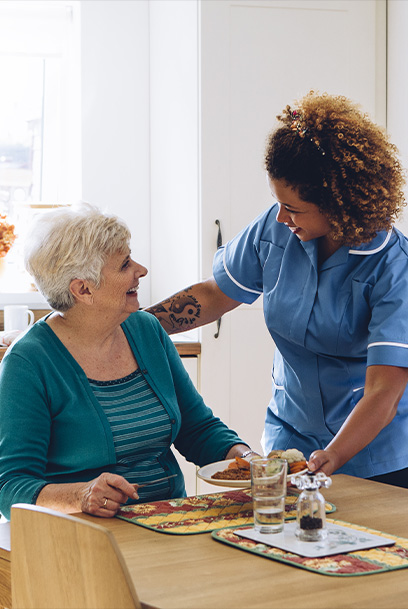Data center operator DartPoints plans to up the capacity of its Greenville center by 400%.
But unlike the super centers popping up around the Palmetto State, each gobbling upwards of 100 megawatts of power, DartPoints’ growth is on a much smaller scale — 12.5 megawatts, up from a 2.5-megawatt starting point.
The company pledged this month to invest $125 million in the expansion of its Greenville location, adding 88,000 square feet to the facility.
At the heart of the company’s expansion: artificial intelligence.
DartPoints’ customers are now demanding three times the capacity and computing power compared to just a year or so ago, CEO Scott Willis told the SC Daily Gazette.
“AI potentially has the opportunity to change their business in a very dramatic way. We’ve got to come along with that,” he said.
Companies are turning to AI bots to run customer care chats. Robots in manufacturing are becoming more autonomous. And from a health care perspective, hospital systems are offering more computer-heavy remote services, with wearable devices that track vitals like heart rate and blood sugar, Willis said.
So expanding is essential, he said, if DartPoints wants its centers to remain relevant over the next five years.
“It is no longer a ‘nice to have.’ It’s a requirement, on our part, to understand that change, anticipate that change,” Willis said.
More than a decade in SC
DartPoints has operated data centers in South Carolina for more than a decade. With locations in Columbia, Spartanburg and Charleston, as well as Greenville, the state is the Dallas-headquartered company’s largest market.
To finance its expansion in South Carolina, as well as in Ohio and Indiana, DartPoints secured a $250 million investment from a pair of partners earlier this year.
“South Carolina is a great business environment,” Willis said. “It’s a great state, positioned within the Southeast. It’s growing massively in terms of attracting businesses, and we want to participate in that.”
But consumer groups and politicians have pushed back against the proliferation of data centers over the past couple years. Most of that ire is aimed at so-called hyperscale centers, owned and operated by tech giants such as Google and Meta.
These windowless centers, which house rows of servers, are among the largest drivers of growing power needs in the state, generating vast demand for electricity on top of the needs of an ever-growing manufacturing and population base.
Willis is quick to point out not all data centers are the same.
For starters, he said, utilities already have the kind of capacity on their system that DartPoints requires.
“We are a non-invasive partner inside the state,” Willis said. “We don’t disrupt the demand of the grid. We’re not asking Duke (Energy) or other utilities to invest a significant amount of money that could result in price increases for the overall citizens of the state of South Carolina.”
A different kind of customer
DartPoints also tends to serve customers that require a bit more privacy and control over their IT systems.
The company specializes in private, dedicated servers that its customers can access remotely, with guarantees that the computing power will always be available for that customer’s use. Turning to Google or Microsoft or Amazon Web Services, businesses share space on those companies’ servers, using what’s known as a public cloud system, Willis said.
If a DartPoints customer wants even more control, they can choose to have their own servers caged within a DartPoints facility that only that company’s employees have access to. DartPoints simply supplies the space and power it takes to operate and cool the equipment.
Before DartPoints moved into the state, Willis said, companies had to turn to major providers in big cities, such as Atlanta, Charlotte or Nashville or major computing hubs in northern Virginia, for these serices.
Now, companies have a local option that often comes at a lower cost because they don’t have to lay down lines of fiber to get connected to a distant center. The computing speeds are also faster because companies don’t have to wait for their data to travel longer distances over the network, a major bonus as more are turning to artificial intelligence.
In all, DartPoints has about 300 customers that use its four South Carolina data centers, Willis told legislators last September. Those companies collectively generate $60 billion in revenue within the state and employ about 140,000 people.
DartPoints’ customer base mirrors the state’s major economic sectors — manufacturing, health care, some financial institutions and state and local government, as well as higher education.
“DartPoints’ growth in Greenville shows how innovation and infrastructure investment go hand in hand,” Gov. Henry McMaster said in a statement. “This project reinforces South Carolina’s position as a destination for technology-driven business and demonstrates how our state can support advanced digital operations with the power, talent and collaboration they require to thrive.”
Construction is underway and the additional space is expected to be operational in July 2027.
The company does not publicize how many people it employs in South Carolina but pledged 10 new jobs as part of the expansion.
After Greenville, Willis said, DartPoints will turn its attention to growing its Columbia center, located within the South Carolina Research Authority Innovation Center. Details on that expansion are forthcoming, he said.

 864-580-3470
864-580-3470




 Service Areas
Service Areas























